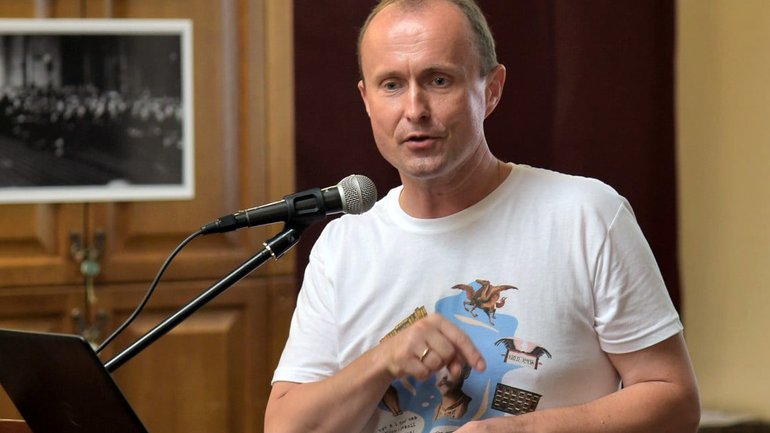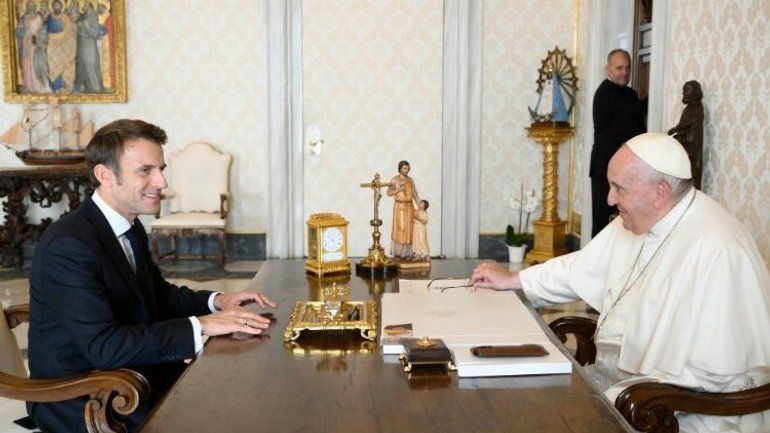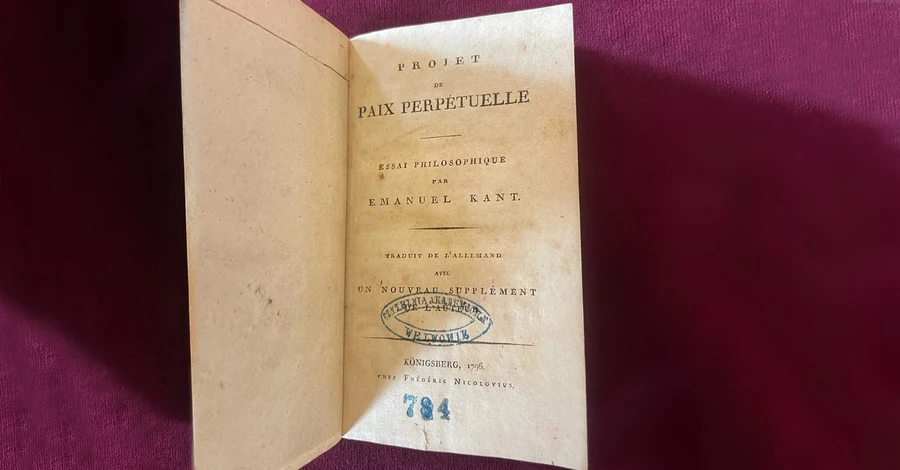"It is impossible to return a book presented to the Pope", the Director of Lviv Library assumes

However, in the beginning, books the photo of which was posted on His Holiness ' Twitter account, one can easily see a library postmark with the inscription in Polish – "Academic Reading Room in Lviv". That is, the valuable book was clearly taken out or stolen from here at some point.
After the Second World War, books from the academic reading room were transferred to the Scientific Library of the Ivan Franko Lviv National University.
"When it became known about this gift, we were obliged to check the information – because the book has the seal of the Academic Society," director of the Scientific Library of the Ivan Franko Lviv National University Vasyl Kmet told "KP in Ukraine". "It turned out that in the collections of the university library, there are lifetime editions of Kant 1796 in German. But this particular French-language publication is not registered in our country. However, it is obvious that it was kept in the library of the Academic Society. Probably with some private collection got abroad. Or one of the emigrants could take a book and leave Lviv, fleeing, for example, from persecution during the Second World War or earlier."
The attention of the staff of the Scientific Library of Lviv University, according to its director, is constantly focused on those rarities which emerge at foreign auctions.
"Lviv libraries have suffered huge losses," Vasyl Kmet continues. "Lifetime editions of any Classic are very important, especially of such magnitude, such a thinker, philosopher, which for the world philosophy is Kant. And the important thing is that this is the first French-language edition of his treatise on the world."

The book, presented to the Pope, was taken from Lviv before or during the Second World War. According to Vasyl Kmet, this is attested by the absence of other marks on the title page.
"From a bibliographic point of view, such a book was an important acquisition for Lviv," the historian continues. "It's a shame she didn't go back to her seat. As a bibliographic monument, it is a unique unit."
The Academic Reading Room was founded in Lviv in 1867 and was popular until the beginning of World War II as a cultural and scientific organization, a youth public structure. It brought together Lviv students. It consisted almost only of Polish Jan Kazimir University students – today's Ivan Franko Lviv National University. In 1901, the academic reading room invited Mykhailo Grushevsky and his family to a dance party.
"And they had their own library," Vasyl Kmet continues. - But they were very closely connected with the environment of Lviv University – still students. In general, a lot of people from high society were connected with the University, in particular, the professor, the future rector of Lviv University, intern was also one of its members."

As Vasyl Kmet notes, it makes no sense to hope for the return of a valuable copy to Lviv.
"Getting books back is a big challenge," he says. "In the post-war years, the Soviet Union signed many documents that actually closed the issue of restitution of property alienated during the war. By removing any claims against the Warsaw Pact countries and other states, the Soviet Union closed this path. Everything is actually very difficult and almost impossible. I have experience working in the Interstate Commission for the restitution of alienated records, and we didn't have many results there, more curiosities. It was easiest for Ukraine to demand something to return – our Ministry of Culture rather agreed to consider some issues regarding the return on our part. And when it came to returning to us monuments that, say, were taken out of Lviv, the Ukrainian side did not have much success."
Second-hand bookseller Marina Libanova claims that the price of a book can start from 10 thousand euros.









